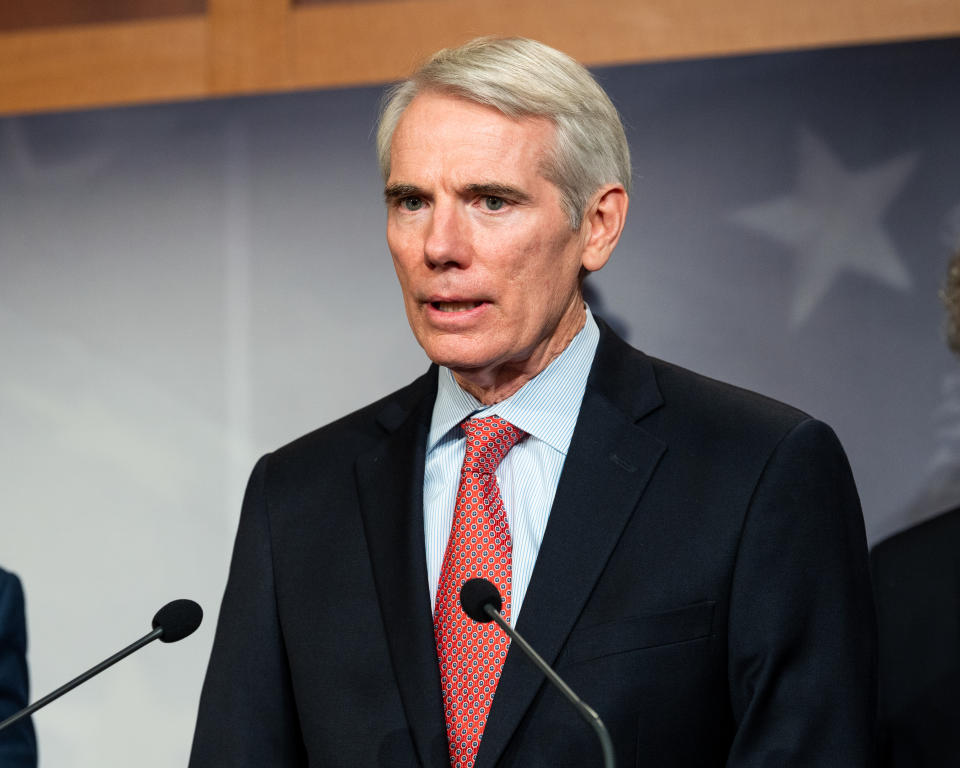As another shutdown looms, this senator wants to end shutdowns for good

If Congress doesn’t act before the end of the month, the government could shut down once again.
A new bipartisan Senate report estimates the last three government shutdowns cost taxpayers $4 billion. That’s why Sen. Rob Portman (R-OH) wants to end government shutdowns for good.
“It’s wrong. It makes it hard, I think, for a lot of Americans to have much trust in their government when the government can’t do its most basic function,” said Portman in an interview with Yahoo Finance.
Portman and Sen. Tom Carper (D-DE) lead the Permanent Subcommittee on Investigations (PSI), which released a new report this week breaking down the cost of government shutdowns.
The report examined the 16-day shutdown in 2013 during a fight over the Affordable Care Act, the three-day shutdown in January 2018 and the 35-day shutdown that stretched from December 2018 to January 2018 over funding for President Trump’s border wall.
The report found those shutdowns cost taxpayers $3.7 billion in back pay for furloughed federal workers and at least $338 million in other costs, including extra administrative work, lost revenue and late fees on interest payments. The investigation also found the worker furlough days add up to an estimated 56,938 years of lost productivity.
Costs associated with shutting down the government
“I hope this report serves as a reminder to the President and Congress about the real consequences and costs to taxpayers when we do not do our jobs,” Carper said in a statement. “Now, Congress has until the end of the month to work together to fund the government to avoid another shutdown. Democrats and Republicans must come together, stop governing through continuing resolutions that are woefully inefficient, and do our most basic job by ensuring that our government has the funds it needs to operate.”

The report noted agencies are still feeling the effects of the last shutdown.
Portman told Yahoo Finance his office tried to assist a new non-profit organization on getting 501(c)(3) status — but the IRS told them they couldn’t get to the application, because of a backlog caused by the government shutdown.
“It continues — whether it’s on immigration hearings or IRS filings or any number of others,” said Portman, “There are a number of things that have been affected by the shutdown and continue to be affected today that hurts taxpayer service.”
The committee said it wasn’t able to get all the information it wanted. The Departments of Defense, Agriculture, Justice, Commerce, and the Environmental Protection Agency did not know the amount paid to employees in back pay following certain shutdowns, according to the report. Some agencies weren’t able to provide information about other costs associated with the shutdown.
The Congressional Budget Office found not only did the most recent shutdown cost taxpayers, but it hurt economic growth. In January, the CBO estimated that the shutdown reduced economic growth by a combined $11 billion in the fourth quarter of 2018 and the first quarter of 2019.
End shutdowns for good
The House and Senate need to agree on a series of spending bills before the end of the month to avoid another shutdown.
“The Congress clearly has a budget problem. The system is dysfunctional. It’s not working. We need to fix that,” Portman said.
Portman has introduced legislation to end shutdowns for good. The senator has introduced the bill every year since 2010. Most recently, he reintroduced it in January during the shutdown over border wall funding.
Under Portman’s legislation, if Congress can’t agree on spending before the end of the fiscal year, the spending levels from the previous year would automatically continue. After the first 120 days, funding would be cut by 1%. There would be another 1% cut every 90 days until Congress completes the appropriations process.
Opponents of Portman’s idea argue have expressed concerns about taking Congress out of the decision-making process.
Jessica Smith is a reporter for Yahoo Finance based in Washington, D.C. Follow her on Twitter at @JessicaASmith8.
Lawmakers request tech giants' records for antitrust investigation
Trump administration considers flavored e-cig ban
State attorneys general join forces to take on Google
CBO warns tariffs could hurt economic growth
Amazon, Google, Facebook testify against France’s digital sales tax

 Yahoo Finance
Yahoo Finance 
